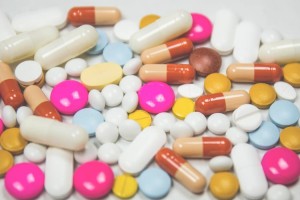Seattle, Washington May 30, 2019 (Issuewire.com) - Global Stomach Cancer Drugs Market, By Therapy Type (Kinase Inhibitors, Nucleoside Metabolic Inhibitors, Anthracyclines, Microtubule Inhibitors, VEGF Antibodies, HER2 Receptor Antagonists, Car T Cell Therapy), By Application (Adenocarcinomas, Gastrointestinal Stromal Tumors and Carcinoid Tumors), By Distribution Channel (Hospital Pharmacy, Retail Pharmacy and Online Pharmacy), and By Region (North America, Latin America, Europe, Asia Pacific, Middle East, and Africa) was valued at US$ 4.0 billion in 2017, and is projected to exhibit a CAGR of 5.4% over the forecast period (2018 - 2026), as highlighted in a new report published by Coherent Market Insights.
Major players operating in the global stomach cancer drugs market include Pfizer Inc., Eli Lilly and Company, GlaxoSmithKline Plc., Kuhnil Pharmaceutical Co. Ltd., Daiichi Sankyo Co. Ltd., Merck KGaA, AstraZeneca Plc, Otsuka Holdings Co. Ltd., Sanofi S.A., and F. Hoffmann-La Roche Ltd, Ono Pharmaceutical Co. Ltd., Bristol-Myers Squibb (BMS), Jiangsu HengRui Medicine Co. Ltd., Gilead Science Inc., Celgene Corporation, Taiho Pharmaceutical, Boston Biomedical Inc., and Merck & Co.
Get PDF Brochure of Research Report: https://www.coherentmarketinsights.com/insight/request-pdf/2667
Increasing Food and Drug Administration (FDA) approvals of biosimilars and developing pipeline of new drug for treatment of stomach cancer are expected to drive the stomach cancer drugs market size. For instance, in January 2019, the U.S. FDA approved South Korea’s Samsung Bioepis’ Ontruzant (trastuzumab biosimilar) for the treatment of metastatic gastric cancer or gastroesophageal junction adenocarcinoma. Samsung Bioepis is a joint venture between Samsung Biologics and Biogen. The biosimilar was approved by the European Commission (EC) in November 2017.
Many companies such as Pfizer Inc., Merck & Co., Bristol-Meyer Squibb, and Eli Lilly & Company are focused on drugs which are in the pipeline such as Ipilimumab and Nivolumab and are expected to launch in near future. For instance, in 2018, Bristol-Meyer Squibb’s Opdivo (Nivolumab) intravenous infusion injection is in the development pipeline. It is in phase 3 for treatment of stomach cancer and is expected to launch in the U.S., Europe, and South Korea.
Emerging research, developmental studies, and clinical trials to understand stomach cancer better and to develop medicine are highly contributing to the stomach cancer drugs market revenue. One of the most recent updates of clinical trials for stomach cancer in March 2019, is the research on Helicobacter pylori eradication for gastric cancer prevention in the general population. This research is being sponsored by National Cancer Center, Korea and has entered into phase 3 showing positive results using bismuth-based quadruple therapy. Furthermore, in December 2018, Korean South West Oncology Group started a clinical trial on efficacy and safety of combination therapy with ramucirumab, paclitaxel, and trastuzumab biosimilar as a second line treatment of HER2 positive metastatic gastric cancer after failure of first-line chemotherapy including trastuzumab. This study is in phase 2 and is expected to complete in 2022.
Browse 38 Market Data Tables and 27 Figures spread through 178 Pages and in-depth TOC on "Stomach Cancer Drugs Market, By Therapy Type (Kinase Inhibitors, Nucleoside Metabolic Inhibitors, Anthracyclines, Microtubule Inhibitors, VEGF Antibodies, HER2 Receptor Antagonists, Car T Cell Therapy), By Application (Adenocarcinomas, Gastrointestinal Stromal Tumors and Carcinoid Tumors), By Distribution Channel (Hospital Pharmacy, Retail Pharmacy and Online Pharmacy), and By Region (North America, Latin America, Europe, Asia Pacific, Middle East, and Africa) - Global Forecast to 2026"
Request Customization Of Research Report: https://www.coherentmarketinsights.com/insight/request-customization/2667
Moreover, various companies in the stomach cancer drugs market are focused on making strategic partnerships and collaborations in order to gain significant market share. For instance, in October 2016, Teva Pharmaceuticals partnered with Celltrion Healthcare Co. Ltd to commercialize biosimilar versions of Roche’s Herceptin to strengthen their product portfolio and fill a gap in its biosimilars pipeline.
Key Takeaways of the Stomach Cancer Drugs Market:
The global stomach cancer drugs market is expected to expand at a CAGR of 5.4% during the forecast period (2018–2026), owing to increasing research & development activities, and demand for genomic and repertoire sequencing-based research.
Among therapy type, the Car T cells segment are expected to earn maximum growth opportunity. For instance, in 2017, pembrolizumab (Keytruda) the immunotherapy agent was approved by the U.S. Food and Drug Administration (FDA) to treat stomach cancer in some patients whose previous treatment did not work or stopped working, and it proved to be better than chemotherapy.
About Coherent Market Insights:
Coherent Market Insights is a prominent market research and consulting firm offering action-ready syndicated research reports, custom market analysis, consulting services, and competitive analysis through various recommendations related to emerging market trends, technologies, and potential absolute dollar opportunity.
Contact Us:
Mr Shah
Coherent Market Insights
1001 4th Ave,
#3200
Seattle, WA 98154
Tel: +1-206-701-6702
Email: sales@coherentmarketinsights.com
Media Contact
Coherent Market Insights sales@coherentmarketinsights.com 2067016702 Mr. Shah https://www.coherentmarketinsights.com









